Tour done, but melody lingers on
Updated: 2015-09-18 11:06
By Niu Yue(China Daily)
|
||||||||
The group formally launched the tour with a performance at Carnegie Hall in New York on July 11 and landed in Beijing the next day.
For most of the young musicians, it was their first time in a country of 1.3 billion people on the other side of the world.
"Even though I understood how large China's population was before I boarded the airplane, I was nonetheless amazed by the sheer numbers of people I saw in the streets, in cars, and in buildings in China," said cellist Henry Shapard of Cleveland Heights, Ohio. "I was very impressed by the constant growth in all of the cities I traveled to - everywhere I looked, new construction abounded."
Challenging moment
One of the most challenging moments of the tour occurred soon after the first stop in Beijing.
"Everyone was suffering from extreme jet lag and was exhausted from the 14-hour flight," said Hjort. "During the first half of the concert, orchestra members almost fell asleep!"
Trying to re-energize themselves at intermission, they listened to pep talks, drank coffee or grabbed quick cat naps.
"Remarkably, the orchestra pulled through, and the second half of the concert was a resounding success," said Hjort.
"Aside from the jet lag, our accommodations, meals, and activities were overwhelmingly comfortable and easy to get used to," Hjort added.
The audiences were overwhelming, too.
"I don't think I've ever heard such loud cheers in my life," said French horn player Nivanthi Karunaratne, 19, of Gurnee, Illinois.
"The performances went extraordinarily well," Shapard added. "In every city we played, the audiences were supportive and encouraging - it was fun to glance into the crowd and see their contented smiles."
"Each performance in China was better than the last," said Hjort.
For the first piece in the program, Tan Dun's Passacaglia: Secret of Wind and Birds, audience members downloaded a sound file to their smartphones and played it during the opening of the piece.
"The effect was sensational and always sent an excited murmur through the crowd," Hjort said. "The energy only increased, and the audience went wild when Li Yundi walked onto the stage. He impressed audiences at every stop, and often received at least seven or eight curtain calls."
But their last encore, the theme from the 2008 Beijing Olympics entitled You and Me, earned the most memorable response, Hojort recalled.
The bassist Lin had never had an audience applaud during a piece before. "I had a huge grin on my face when it happened," he said. "The audiences throughout China gave us a great reception, and I was particularly impressed with the consistent, ubiquitous standing ovations."
Lin also was impressed by the number of children in the audiences.
"In my prior experience with orchestral performances, there aren't nearly as many young children as there were in the Chinese venues," he said.
"From what I saw of the audiences in China, they were much younger than our audiences in America. I saw many young faces, and even children, at our concerts," Chow agreed.
Said Shapard: "As young people, we are very eager to make connections to others, even if they do not speak our language, and we found that sort of collaboration very easy while we were in China."
Despite the hectic schedule, each of the seven cities they visited impressed the young musicians, as did the people they met there.
"I was pleasantly surprised by the fact that all of the public facilities - airports, concert halls - were in such great shape," said Shapard. "The new construction was impressive."
"I was surprised by how much English I came across," said Hjort. "I was also pleasantly surprised by how actively helpful and polite everyone was."
As an architecture student in addition to being a musician, Hjort's favorite part of China was the architectural diversity.
"I loved seeing the traditional Chinese architecture side by side with cutting-edge modern skyscrapers," he said. "I was impressed to see buildings in almost every city designed by world-famous architects."
Hjort said Shanghai was his favorite city of the seven. "It seemed so modern, almost futuristic. I enjoyed the Shanghai Tower and the raised sidewalks. It was vibrant and bustling, almost like a Chinese New York City."
"My favorite city was Hong Kong," said Shapard. "I was fascinated by the intersection of British and Chinese culture and amazed by the natural setting in which the city is located. We played a wonderful last concert there, and I associate the city with the tight bonds I formed while traveling with the ensemble."
The young musicians also got to meet local musicians during exchanges with local youth orchestras in Guangzhou and Hong Kong.
"We had chances to rehearse side by side with and meet local youth orchestras," Chow recalled. "During our dress rehearsal in Guangzhou, the Guangzhou Symphony Youth Orchestra listened in, and afterward, we had a little meet-and-greet."
"It was a wonderful disaster - our speaking butchered Chinese to them and their responding in butchered English," Chow joked.
The horn sections of the Guangzhou Youth Orchestra and the NYO are actually still in touch. "We have an active group on the app WeChat," Karunaratne said."We exchange pictures, music and even questions and answers."
As Tan, Oscar-winning composer for Crouching Tiger, Hidden Dragon, told the NYO-USA's tour: "Music, from ancient times to the future, is always a bridge between people."
"It seems as though music is one of the best ways for countries that do not share a language to grow closer together," said Shapard.
Eileen Moudou, 16, a violinist from Potomac, Maryland, told China Daily, "By the end of the tour, I came to the realization that, yes, they were different, as is liable to happen with a country across the globe from your own, but the similarities were too obvious and, quite frankly, comforting."
Lin said: "Without a doubt. Not only did Chinese audiences get exposed to American musicians, but the exchanges and interactions we had with Chinese youth musicians helped build relationships between youth that we will carry into the future."
Karunaratne added: "It can be easy to develop impressions and judgments of a culture without having experienced it, and these tours are crucial in dissolving that. Their impact extends beyond simply forming new friendships. They invite curiosity, and that, more than anything, promotes positive relationships,"
"These tours bring foreign musicians from abroad and give Chinese audiences a chance to learn about a new culture, and give the inhabitants of that culture a small exposure to the world beyond," she said.
Karunaratne talked about the misconceptions between different cultures.
"It can be easy to develop impressions and judgments of a culture without having experienced it, and these tours are crucial in dissolving that," Karunaratne said. "Their impact extends beyond simply forming new friendships. They invite curiosity, and that, more than anything, promotes positive relationships."
Shapard said he "would not be surprised if I end up spending a considerable amount of time in China in the coming years".
"The market for classical music in China is rapidly expanding, and it seems like it will continue to be a destination for classical musicians during my lifetime."
Hong Xiao in New York contributed to this story.
Contact the writer at xiao.hongpolaris@gmail.com
- UN chief: Those blocking fleeing refugees should 'stand in their shoes'
- Hungarian riot police detain migrants
- IOC announces five cities bid for 2024 summer Olympic
- Japan opposition to halt vote on security bills
- Japan protesters rally as security bills near passage
- Australia launches first air strikes against IS
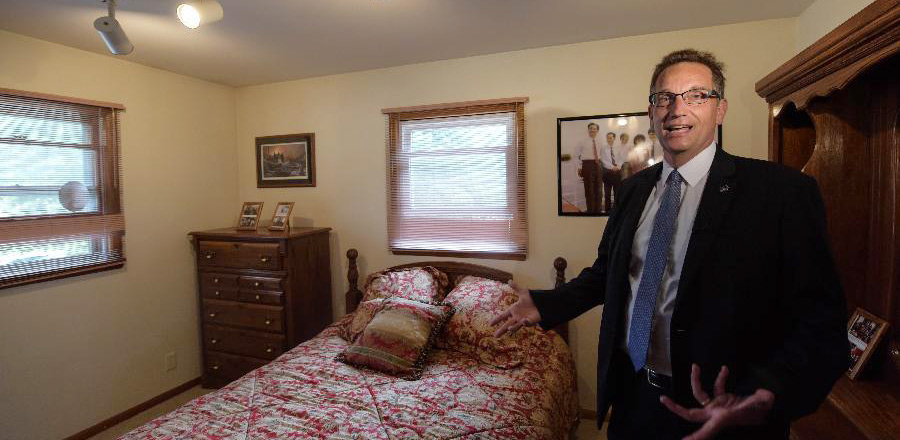
 House showcasing Sino-American friendship open
House showcasing Sino-American friendship open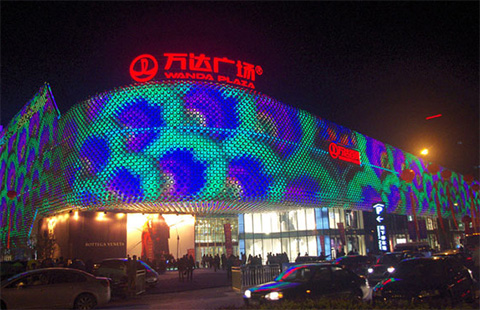
 Top 10 M&A deals between China and US in 2015
Top 10 M&A deals between China and US in 2015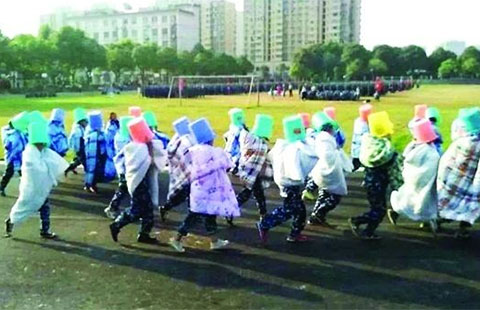
 Messy dorm earns grueling punishinment for students
Messy dorm earns grueling punishinment for students
 Seven killed in landslide in SW China
Seven killed in landslide in SW China
 Chinese forces arrive in Malaysia for military exercise
Chinese forces arrive in Malaysia for military exercise
 Top 10 M&A deals between China and US in 2015
Top 10 M&A deals between China and US in 2015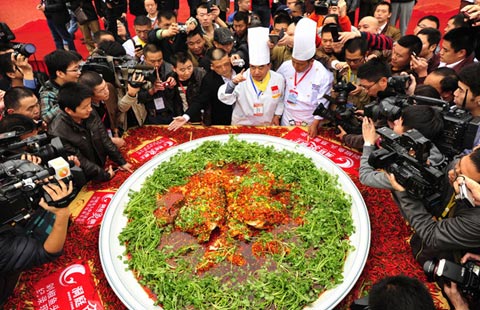
 Delicious bites in record-breaking sizes
Delicious bites in record-breaking sizes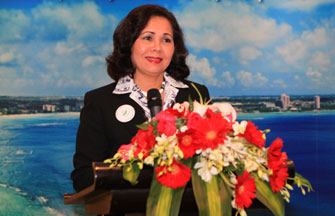
 An interview with Pilar Laguana: Introducing the island of Guam to China
An interview with Pilar Laguana: Introducing the island of Guam to China
Most Viewed
Editor's Picks

|

|

|

|

|

|
Today's Top News
President stresses Sino-US harmony
LA-Las Vegas link gets help
US CEOs give nod to BIT
Economy worries prompt Fed to hold rates steady
Google demos online marketing strategies to support Chinese SMEs
The ancient city takes a new route along the Silk Road
Villagers angry at verdict on fatal fire
Promoting the landscapes of China
US Weekly

|

|








